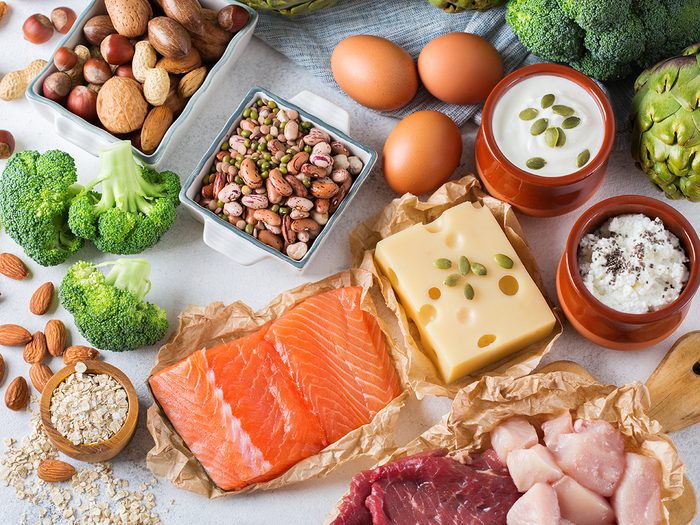
The best protein sources to add to your cart
In the latest version of Canada’s Food Guide, the category previously called “Meat and Alternatives” has been replaced with advice to “Eat protein foods.” These sources of protein should account for approximately 1/4 of your diet. The rest of your diet should be made up of 1/4 whole grains and 1/2 vegetables and fruits.
Research suggests that eating more protein, in the form of eggs, lean meat, poultry, fish, legumes, nuts and seeds, low-fat dairy products and fortified soy products, can safely promote weight loss and reduce your risk of heart disease. Plus, one of protein’s key benefits is that it may leave you feeling satisfied longer than carbohydrates do, so you actually end up eating less. Plant-based sources of protein can provide more fibre and less saturated fat than other types of protein foods, according to Canada’s Food Guide.
Read on for the best protein sources.

Eggs
One medium egg contains just 66 calories and about 6.8 grams of protein. That means three eggs (198 calories) provide 20.4 grams of protein: an average 65 kg (143 lb) adult needs about 52 grams a day, so that’s almost half of your daily intake. (Actual protein needs depend on your weight and level of activity; talk to your doctor to get specific requirements for you.) Eating a three-egg Spanish omelette, or three scrambled or poached eggs on toast, will keep you full for hours.
Here’s how to get perfect hard-boiled eggs, every time.
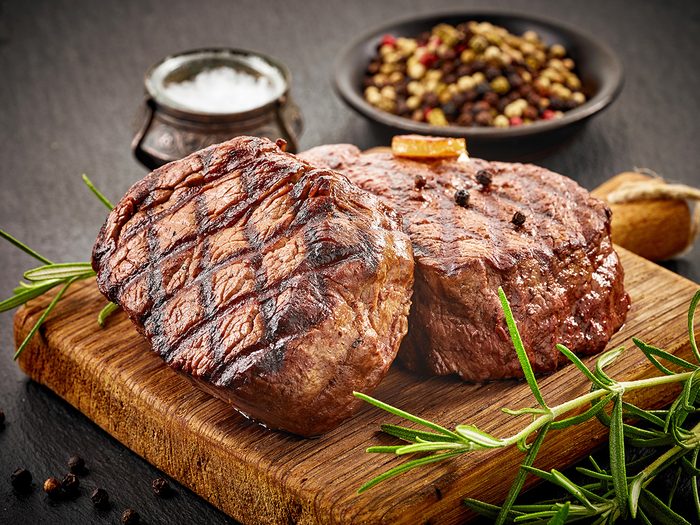
Lean meat
Canada’s Food Guide recommends lean cuts of beef, pork and wild game, as well as turkey and chicken. If red meat is your preferred source of protein, choose the leanest cuts to reduce the added fat. Lean options such as London broil steaks and extra lean ground beef may cost a little more but the benefits are priceless.
The DASH (Dietary Approaches to Stop Hypertension) Diet recommends 3 ounces of cooked lean meat a day. Following this diet can lower your blood pressure by 8.9/4.5 mmHg, reducing your risk of heart disease by 15 percent and your stroke risk by 27 percent.
Find out more lifestyle tweaks to improve heart health.
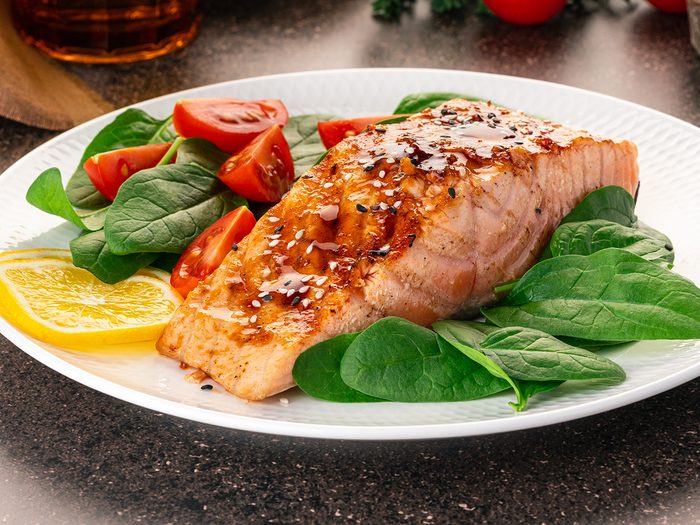
Fish
Most fish contains about the same amount of protein as meat, and provides iron and vitamin B-12, important for energy. It’s also a healthy swap for some popular meat options. For example, ounce for ounce, a salmon steak has one fourth the saturated fat of beef steak. Some great options from Canada’s Food Guide include trout, shrimp, salmon, scallops, sardines and mackerel. Just watch your sodium intake if you’re choosing canned fish.
Here are the healthiest fish you can eat.
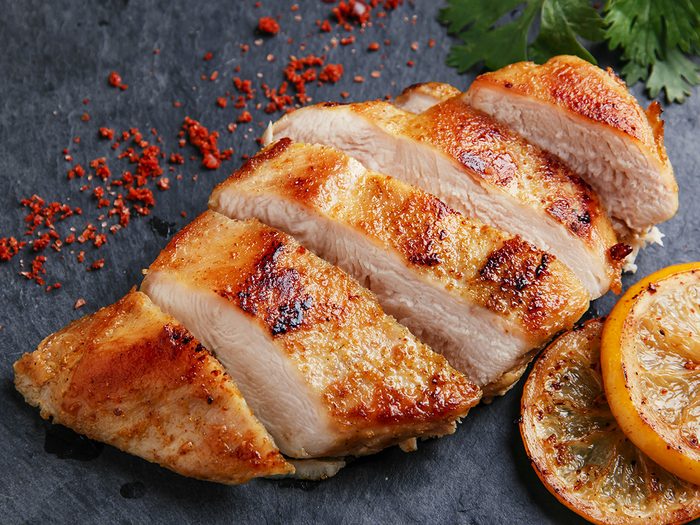
Poultry
Chicken and turkey are great sources of protein and low in saturated fat, especially if you choose skinless white meat. A 3.5 oz serving of chicken breast will provide you 21 grams of protein. In addition to protein, poultry provides a good amount of vitamin B and zinc. Turkey even provides other nutrients that are being studied for their connection to alleviating depression.
Brush up on the essential vitamins your body needs to stay healthy.
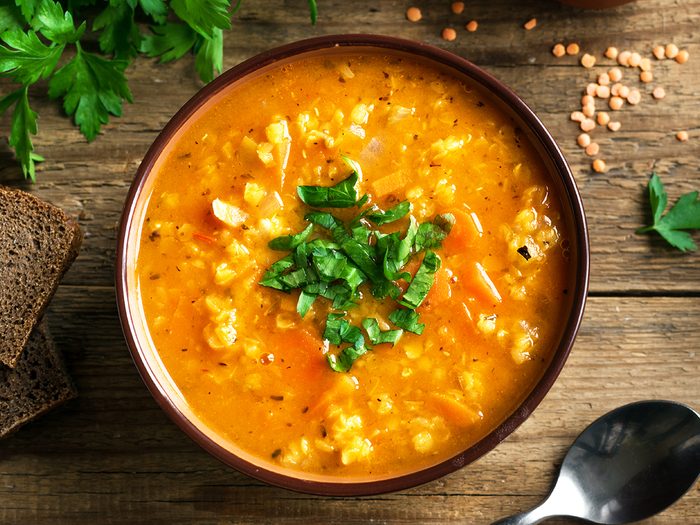
Legumes
Legumes can be considered the perfect food. They contain more protein than any other plant food, are high in complex carbs and low in fat. A cup of cooked lentils will provide nearly 18 grams of protein, comparable to a serving of T-bone steak.
Try brown, red or green lentils, peas such as chickpeas and split peas, and dried beans such as black beans and kidney beans.
Are you getting too much of a good thing? Here are six signs you’re eating too much protein.
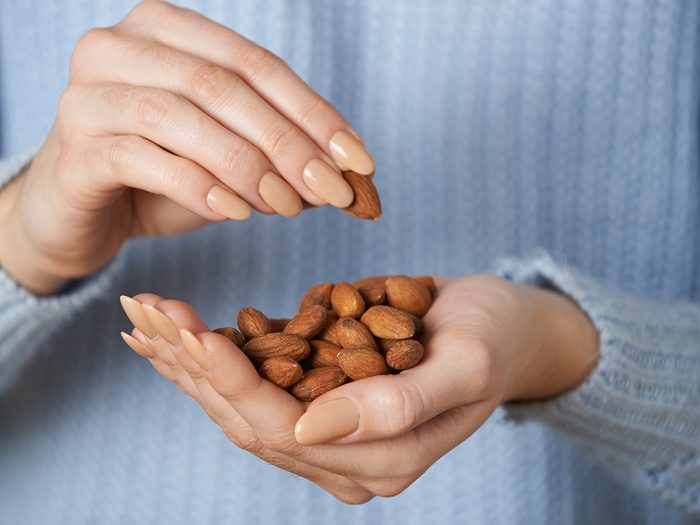
Nuts and seeds
Nuts are among the best protein sources, and are rich in healthy fats (mono and polyunsaturated). They are also a slow-burning food, leaving you feeling full longer. Studies have shown that nuts can even help people lose weight, but it’s important to watch your portion sizes. Stick to just one handful of nuts per serving. Canada’s Food Guide lists peanuts, almonds, cashews, nut butters and sunflower seeds as great sources of protein.
Consider adding these high fibre foods to your diet, as well.
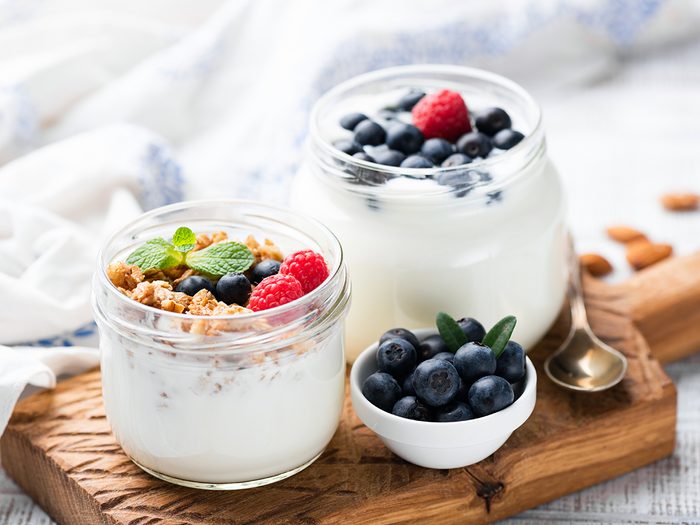
Low-fat dairy
Dairy is not just important for bone health—the protein in low-fat dairy products, such as yogurt and skim milk, also helps to maintain healthy blood pressure.
Discover more natural remedies for high blood pressure.
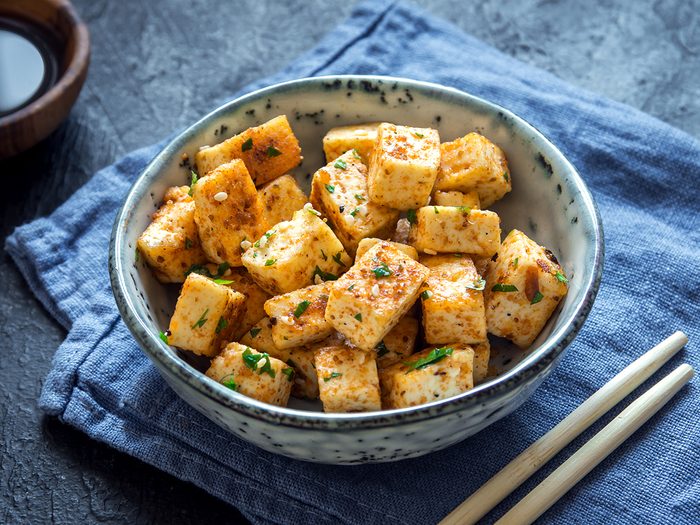
Fortified soy products
If you have a lactose intolerance, or if you just prefer to avoid dairy, try fortified soy beverages, tofu or soybeans.
Next, learn how to spot the signs you’re not eating enough protein.